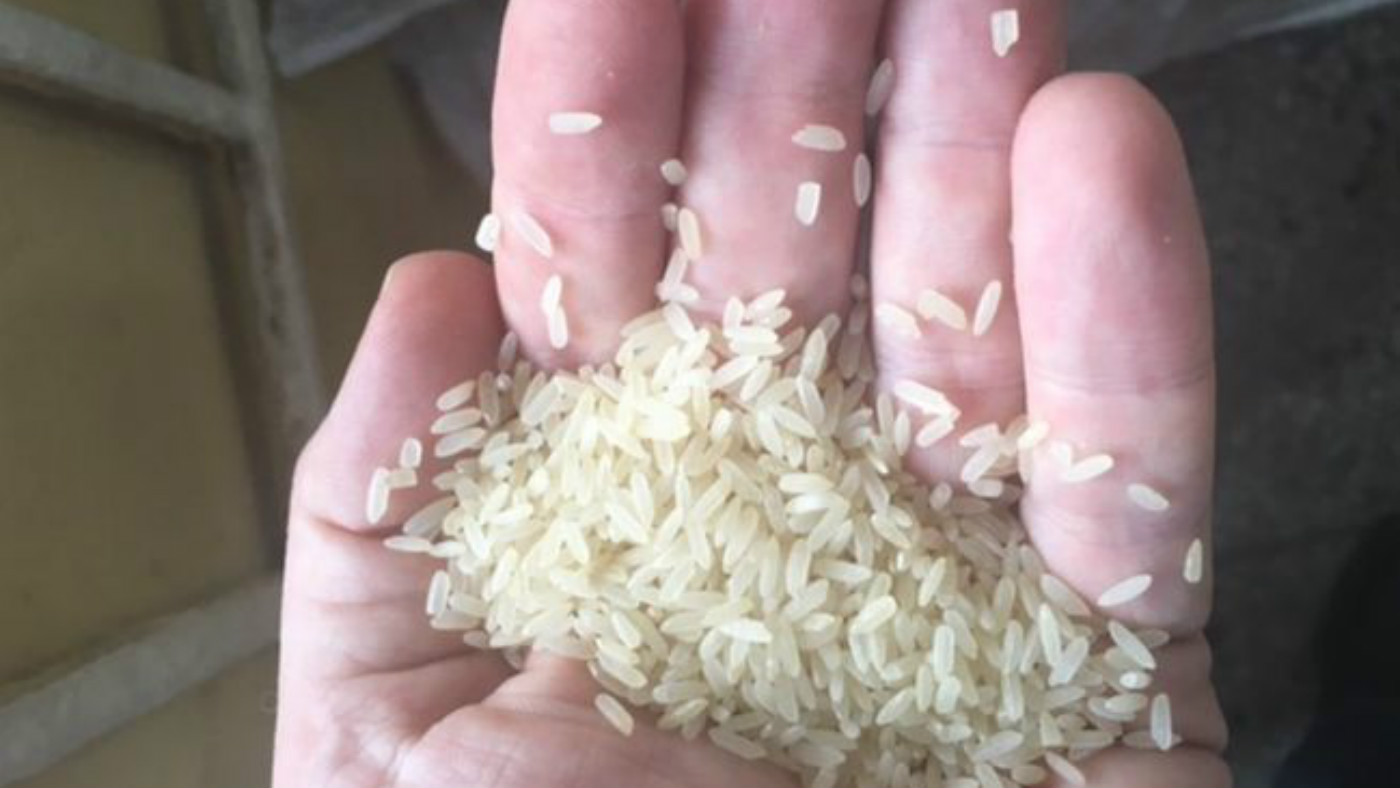Plastic 'rice' confiscated in Nigeria
Counterfeit food floods markets after price of a bag more than doubles in a year

A free daily email with the biggest news stories of the day – and the best features from TheWeek.com
You are now subscribed
Your newsletter sign-up was successful
Nigerian officials have seized more than 2.5 tons of plastic "rice" believed to have been smuggled into the country from China.
At least one suspect has been arrested in connection with the "haul of 102 bags", the contents of which are "dangerous for human consumption," reports The Guardian.
The bags were marketed as "Best Tomato Rice" and had no date of manufacture.
The Week
Escape your echo chamber. Get the facts behind the news, plus analysis from multiple perspectives.

Sign up for The Week's Free Newsletters
From our morning news briefing to a weekly Good News Newsletter, get the best of The Week delivered directly to your inbox.
From our morning news briefing to a weekly Good News Newsletter, get the best of The Week delivered directly to your inbox.
According to Lagos customs chief Haruna Mamudu, it was likely to have been sold in markets during the run-up to Christmas and could have had severe health implications if it had been eaten.
"We have done a preliminary analysis of the plastic rice. After boiling, it was sticky and only God knows what would have happened if people consumed it," he said.
Prices for the popular Nigerian staple have gone through the roof because of galloping inflation. A 110lb bag now sells for around 20,000 naira (£51), more than double the price in December last year.
Local media has reported fake rice being found in several places since mid-November, with the Nigerian Bulletin posting advice on how to spot the counterfeit product.
A free daily email with the biggest news stories of the day – and the best features from TheWeek.com
"Get a lighter and burn a handful of rice. If it catches fire and smells like burnt plastic, you have fake rice," the paper says.
-
 James Van Der Beek obituary: fresh-faced Dawson’s Creek star
James Van Der Beek obituary: fresh-faced Dawson’s Creek starIn The Spotlight Van Der Beek fronted one of the most successful teen dramas of the 90s – but his Dawson fame proved a double-edged sword
-
 Is Andrew’s arrest the end for the monarchy?
Is Andrew’s arrest the end for the monarchy?Today's Big Question The King has distanced the Royal Family from his disgraced brother but a ‘fit of revolutionary disgust’ could still wipe them out
-
 Quiz of The Week: 14 – 20 February
Quiz of The Week: 14 – 20 FebruaryQuiz Have you been paying attention to The Week’s news?
-
 Epstein files topple law CEO, roil UK government
Epstein files topple law CEO, roil UK governmentSpeed Read Peter Mandelson, Britain’s former ambassador to the US, is caught up in the scandal
-
 Iran and US prepare to meet after skirmishes
Iran and US prepare to meet after skirmishesSpeed Read The incident comes amid heightened tensions in the Middle East
-
 Israel retrieves final hostage’s body from Gaza
Israel retrieves final hostage’s body from GazaSpeed Read The 24-year-old police officer was killed during the initial Hamas attack
-
 China’s Xi targets top general in growing purge
China’s Xi targets top general in growing purgeSpeed Read Zhang Youxia is being investigated over ‘grave violations’ of the law
-
 Panama and Canada are negotiating over a crucial copper mine
Panama and Canada are negotiating over a crucial copper mineIn the Spotlight Panama is set to make a final decision on the mine this summer
-
 Why Greenland’s natural resources are nearly impossible to mine
Why Greenland’s natural resources are nearly impossible to mineThe Explainer The country’s natural landscape makes the task extremely difficult
-
 Iran cuts internet as protests escalate
Iran cuts internet as protests escalateSpeed Reada Government buildings across the country have been set on fire
-
 US nabs ‘shadow’ tanker claimed by Russia
US nabs ‘shadow’ tanker claimed by RussiaSpeed Read The ship was one of two vessels seized by the US military